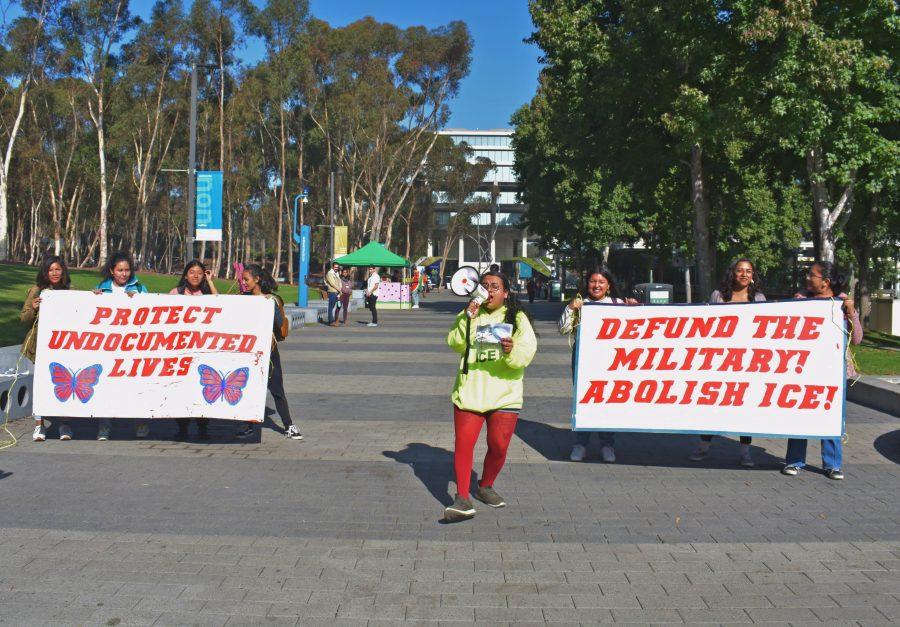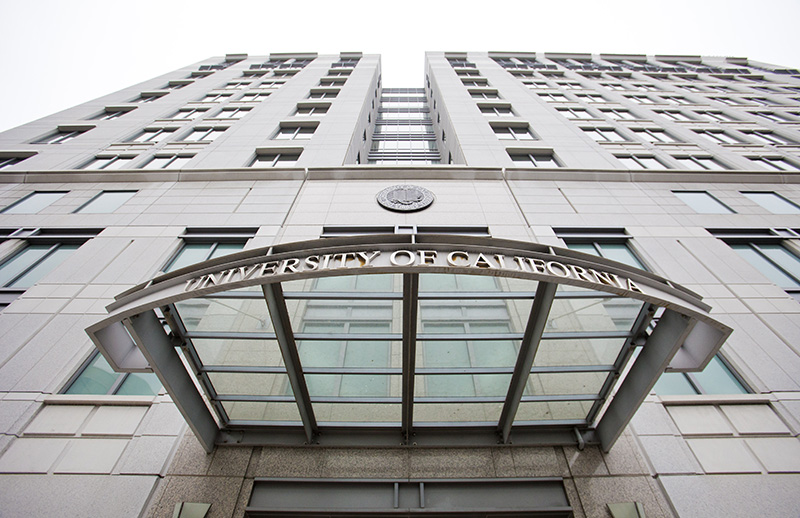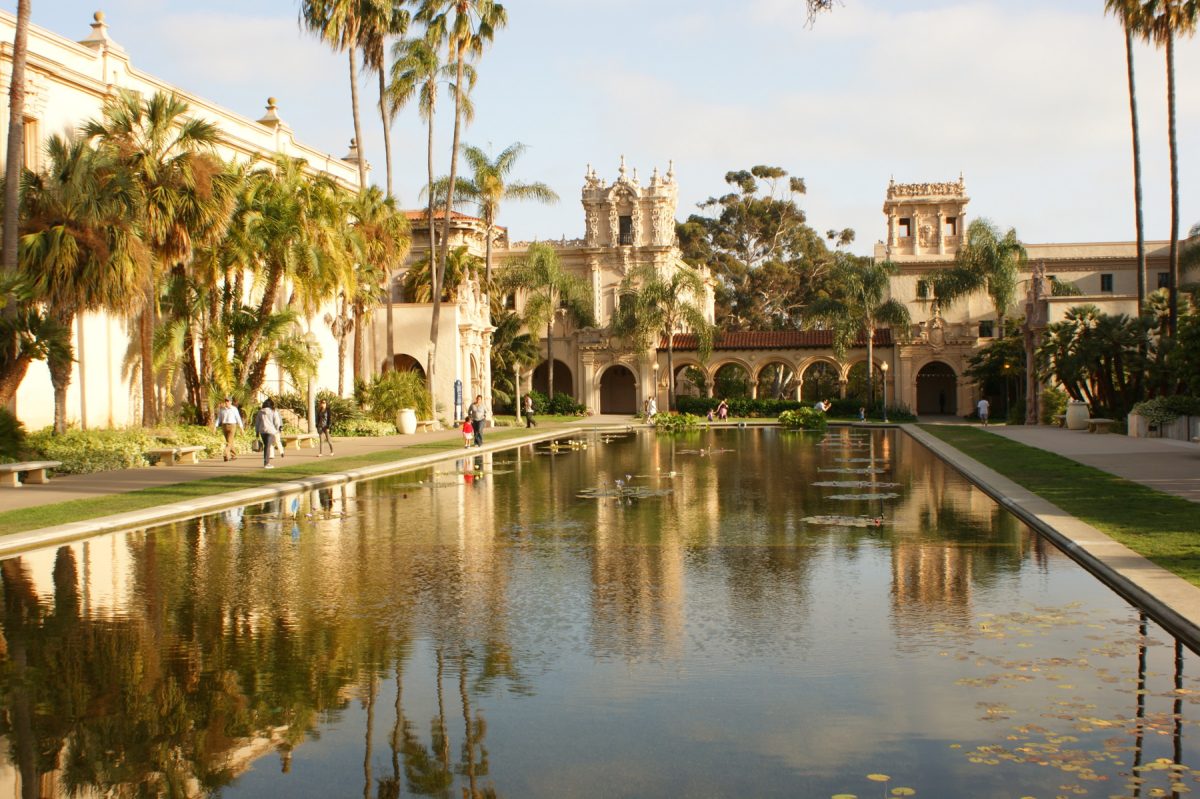Students demonstrated in front of Geisel Library for the Deferred Action for Childhood Arrivals program while oral arguments for the program were being heard at the Supreme Court on Tuesday, Nov. 12. The lawsuit being heard was brought forth two years ago by the UC Office of the President in an attempt to stop the Trump administration from rescinding the program.
The students, chanting phrases like “cut their checks, fund our lives,” and “up up up with liberation, down down down with deportation,” showcased banners calling for the defunding of the U.S. military and the abolishment of U.S. Immigrations and Customs Enforcement.
Xelestiál Moreno-Luz, a senior who is the leader and organizer of the protest, spoke to the UCSD Guardian about the message that she was trying to convey through the march.
“When we are talking about undocumented liberation and about the access for undocumented people, if we are only focusing on DACA, we are missing a lot of people who need opportunities and support to be free and live comfortably,” Moreno-Luz said.
Moreno-Luz showed affirmation to University of California’s support of DACA, but also expressed further aspiration.
“What I want to see UC do more of is a call to end deportation and a call to end detention” Moreno-Luz said.
Junior Gabrielle Nathanson spoke to the UCSD Guardian on why she was protesting.
“I’m here because a lot of things are happening very quickly,” Nathanson said. “The border patrol is getting more aggressive … dozens and dozens of families [and] hundreds of people are being detained for no reason … so I wanted to fight against that.”
Crystal Romero, another student protesting, told the Guardian that she felt like it was her duty as a U.S. citizen to support her fellow students.
“The reason why I am here is because, as a US citizen, I think that it is my responsibility to stand for those that do not have the same privilege as I do,” Romero said. “Whether that is undocumented people or students that are under DACA, we have to stand and support one another.”
While the students were protesting on the UC San Diego campus, UC President Janet Napolitano gave a speech on the steps of the Supreme Court Building while the oral arguments for the lawsuit were being heard.
“Our suit demands that the Trump administration abide by the law and abandon its attempts to upend the lives of young people who have been living with uncertainty and fear in the country they call home,” Napolitano said. “This case is not just a matter of what is legal — it is about what is right.”
Thank you for standing with our #DACA students! #UCDACA #UC4DACA #HomeIsHere pic.twitter.com/JRKQSa1iKc
— University of California (@UofCalifornia) November 12, 2019
In a teleconference following the oral arguments hearing, Napolitano explained further the importance of the lawsuit being brought against the Trump administration in regard to the protection of UC students.
“To remove [students] DACA protection in the way that the Trump administration has attempted to do and to make them subject to eviction from the only country they’ve known as home … is inconsistent with good immigration policy and is inconsistent with our values as a country,” Napolitano said.
California Attorney General Xavier Becerra, who has been active in trying to protect the program as well, spoke on the case in regards to the nation as a whole during the teleconference.
“[Today’s hearing] was a fight for the values that have made America a beacon of hope for America,” Becerra said. “I believe that the nine justices heard why we must continue to have that as our legacy.”
Napolitano has been a strong advocate for DACA recipients, having authorized the program while serving as the U.S. Secretary of Homeland Security under the Obama administration in 2012. She has led the push for a lawsuit against the Trump administration since the initial attempt to rescind the program in 2017, filing a brief with the Supreme Court on Sept. 27, 2019.
As of 2017, according to the Public Policy Institute of California, more than 750,000 people are in the program, with over 200,000 of these individuals living in California.
While Tuesday’s oral arguments mark an important step for the case, the Supreme Court is not expected to reach a verdict on the fate of the DACA program until the Spring of 2020.
Photo by Alexandra Fustei.













